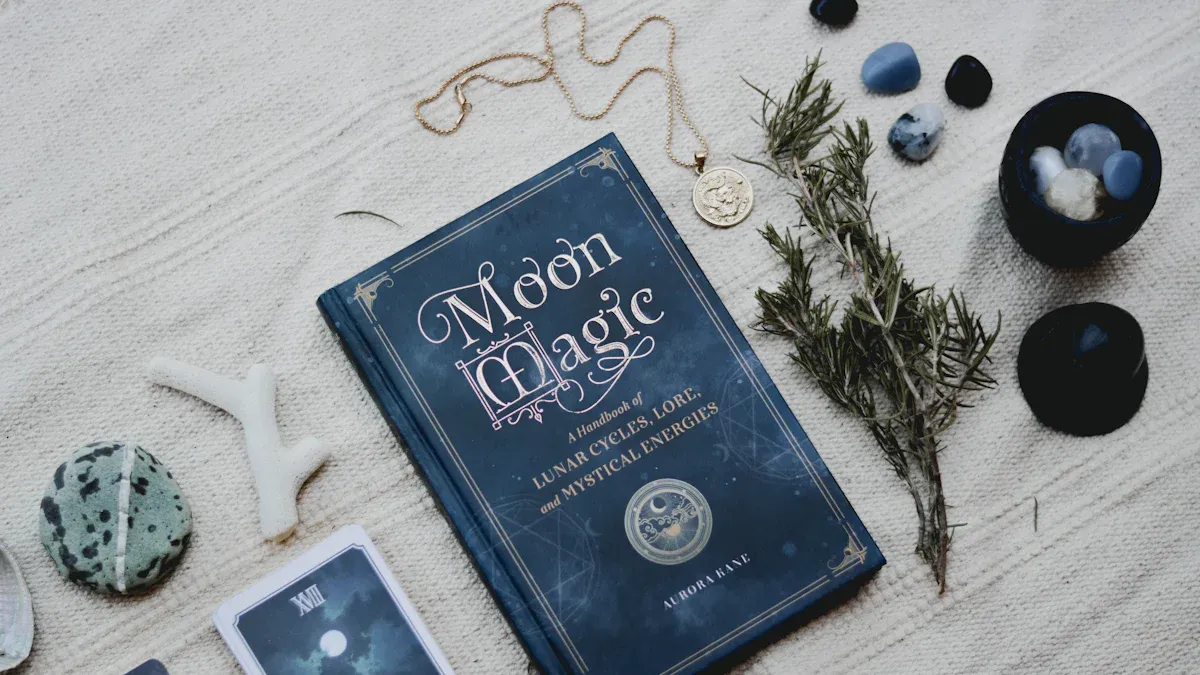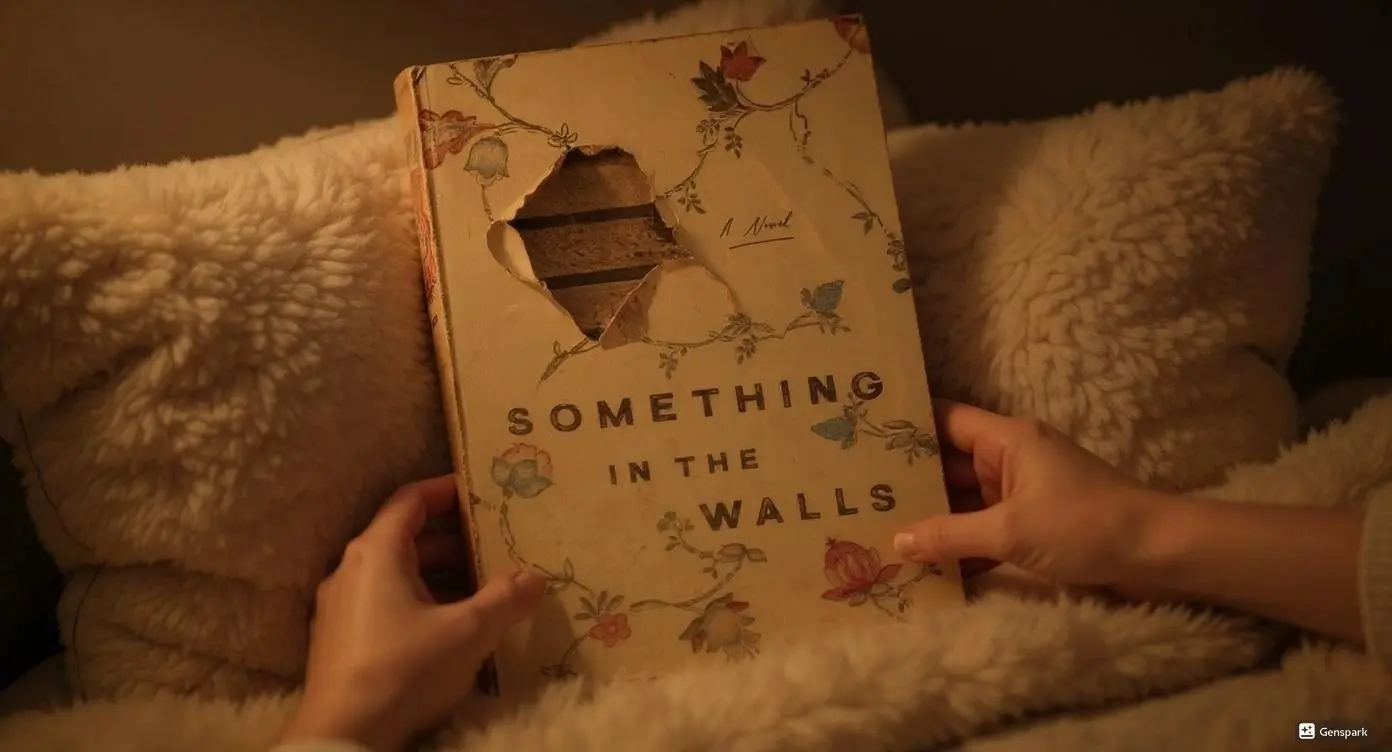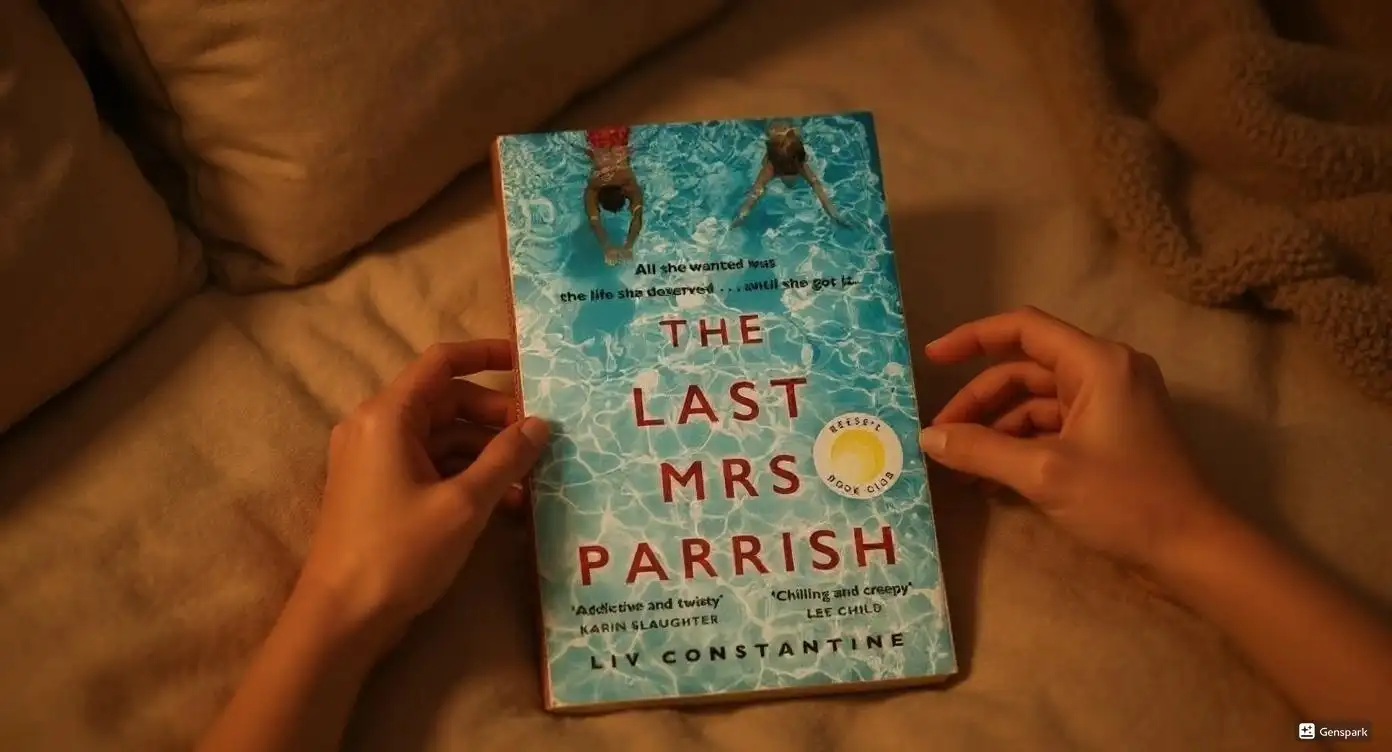I’ll be honest, “UnWorld by Jayson Greene” gripped me right away. The mix of loss, tech, and raw emotion pulled me in. Reader chats online show books like this help us process tough feelings, even when the story feels heavy. Young adults and college grads especially connect with these stories.
Key Takeaways
UnWorld by Jayson Greene tells a strong story about grief and memory. It feels very real and full of emotion.
The book mixes future technology with strong human feelings.
It asks big questions about life and loss. It also asks what it means to remember.
Young adults and college graduates will like this book most.
Readers who enjoy deep and emotional stories will connect with it.
Author and Background
Jayson Greene
I always wonder about the person who writes books that make me feel a lot. Jayson Greene has written about pain and hope before. He wrote a memoir, and it made me think for days. Greene’s writing feels very real. He does not avoid hard topics.
I can tell he has felt real heartbreak, and his characters show it. He writes like someone who has stayed up late, thinking about life. That is why his stories stay with me.
I saw some trends in publishing right now:
Readers like stories that mix old memories with new ideas.
Books about loss are selling well.
A good start helps, but people talking about the book matters more.
More people are listening to audiobooks, while print and ebooks are not growing as fast.
Reports also show that citation numbers and social media talk can help a book get noticed. Greene’s book came out at a good time, since people want stories that make them feel and think.
UnWorld by Jayson Greene: Plot

Anna and Alex
I have to admit, I read the first few chapters of UnWorld by Jayson Greene in one sitting. I felt Anna’s pain right away. She loses her son, Alex, in a way that left me with a knot in my stomach. The book doesn’t give us all the answers about what happened to Alex. That uncertainty made me keep turning the pages. I wanted to know more, but I also felt scared to find out.
Anna’s grief feels real. She doesn’t just cry and move on. She questions everything. She wonders if she could have done something different. I found myself thinking about my own family and how loss can change a person. Anna’s memories of Alex pop up in small moments—like when she sees his favorite toy or hears a song he loved. These details made her pain feel close, almost like it was my own.
Note: If you’ve ever lost someone or worried about losing someone, Anna’s story might hit you hard. I had to put the book down a few times just to breathe.
Intertwined Lives
UnWorld by Jayson Greene doesn’t just follow Anna. The story weaves together four different lives. Each person deals with their own struggles, but their stories connect in surprising ways. I liked how the book jumps between these characters. It kept me guessing about how their paths would cross.
Anna, the grieving mother, searches for meaning after Alex’s death.
Another character works with new technology that promises to change how we remember people.
One person questions what it means to be alive when memories can be stored and replayed.
The last character faces choices about love and letting go.
The setting feels close to our own world, but with a twist. People use technology to hold onto memories and maybe even talk to those who are gone. This near-future world felt believable. I could imagine these changes happening soon.
I noticed the story follows a pattern I’ve seen in other great books. The beginning sets up the characters and their problems. The middle builds tension as their lives get more tangled. The end brings everything together, sometimes in ways I didn’t expect.
I read about studies that show most stories follow this kind of arc. The tension peaks in the middle or near the end, which makes sense here. I felt the most anxious and excited right before the big reveals.
Tip: If you like stories that mix real feelings with big ideas about life and technology, this book will keep you thinking.
Themes

Grief and Memory
I have to admit, grief in UnWorld by Jayson Greene hit me harder than I expected. Anna’s pain felt so real, I sometimes had to close the book and just sit with my own thoughts. The way the story explores memory made me think about how we hold onto people we’ve lost. Sometimes, a song or a smell brings back a flood of memories. Other times, it’s just a quiet ache.
Studies show grief isn’t just in our heads. People who lose someone often get sick more easily. Their bodies react to loss, not just their minds.
Back in 1944, a researcher named Lindemann found that grief can cause both physical and emotional pain. That’s still true today.
Brain scans prove that grief lights up the same parts of the brain that handle memories and feelings.
Doctors now have ways to spot when grief lasts too long and help people heal.
Therapy can help people remember their loved ones in a way that doesn’t hurt as much.
I found myself thinking about my own memories. Sometimes, I wanted to hold onto them forever. Other times, I wished I could let them go. This book made me realize how much memory shapes grief.
Consciousness and AI
The book doesn’t just stick to feelings. It asks big questions about what makes us human. Some characters work with technology that feels almost alive. I started to wonder, can a machine really think or feel? Or is it just pretending?
Research shows people start to believe machines have minds when they look and act like humans. If a robot has eyes or a voice, we treat it like a person. Kids especially have trouble telling the difference. They might talk to a smart speaker like it’s a friend. I caught myself doing the same thing with my phone sometimes.
The more human a machine seems, the more we trust it.
People even share secrets with their devices.
Some scientists say our brains are wired to see minds everywhere, even in things that aren’t alive.
This made me pause. If we can believe a machine has feelings, what does that say about us? Are we just looking for someone to listen, even if it’s not real?
Digital Afterlife
The idea of a digital afterlife in UnWorld by Jayson Greene gave me chills. Imagine saving someone’s memories or voice forever. Would you want to talk to a digital version of someone you lost? I’m not sure I could handle it.
The book shows how technology might let us keep loved ones close, even after they’re gone.
Some characters find comfort in this. Others feel trapped, unable to move on.
I kept asking myself, does holding onto a digital memory help us heal, or does it keep us stuck?
I’ll be honest, this part left me gasping. The thought of never really saying goodbye felt both comforting and scary. I still don’t know how I feel about it.
Style and Impact
Narrative Voice
I have to give props to the way this book talks to me. The voice feels close, almost like Anna is whispering her secrets late at night. I noticed the story jumps between thoughts and memories, which made me feel like I was inside her head. The sentences are short and punchy, but sometimes they slow down and let me breathe. I like how the author uses simple words but still packs a punch.
The story follows a clear arc: I meet Anna, feel her pain, and watch her try to heal.
The pacing keeps me hooked. I never felt bored or lost.
Dialogue feels real, not forced. I could hear the characters in my mind.
The book avoids clichés and keeps the language fresh.
Sometimes, I caught myself reading a line twice, just to feel the weight of it.
Emotional Depth
This book had me sobbing more than once. I felt Anna’s grief in my chest. Studies show that readers can feel a mix of emotions—joy, anger, confusion—all at once. That happened to me here. My heart raced, my hands shook, and I had to pause to catch my breath.
I learned that feeling so many things at once can make it hard to remember details, but I didn’t care. I just wanted to feel.
The story made me curious, and that curiosity pulled me deeper.
I saw myself in Anna’s pain and hope.
To be fair, not every book leaves me gasping, but this one did. I couldn’t put it down.
Strengths & Weaknesses
I have to give props to any book that makes me stay up way too late, eyes burning, just to read one more page. That happened with this one. I found myself hugging the book to my chest after some chapters, just needing a minute to breathe.
Strengths:
Raw emotion: The grief in this story feels real. I felt Anna’s pain in my bones. The author doesn’t sugarcoat anything.
Short, punchy writing: The sentences hit hard. I never got lost or bored.
Big questions: The story made me think about memory, loss, and what it means to be alive. I love books that mess with my head like that.
Believable future: The tech in the story felt close to what we have now. It didn’t feel fake or too far out.
Weaknesses:
Heavy mood: Sometimes, the sadness weighed me down. I had to take breaks. If you want something light, this isn’t it.
Unanswered questions: Some plot points left me hanging. I wanted more closure.
Jumps in perspective: Switching between characters sometimes pulled me out of the story. I had to reread a few pages to catch up.
To be fair, not every book needs to tie up every loose end. Still, I finished with a few questions buzzing in my head.
Uniqueness
Speculative Elements
I have to give props to this book for how it blends the near future with real feelings. The tech in the story doesn’t feel like magic or science fiction from another planet. It feels close—almost like it could show up in our lives next week.
I found myself thinking, “Would I want to save my memories this way?” or “Could I talk to someone I lost if I had this tech?” That’s chilling in the best way.
The story uses memory-saving technology as a tool for both comfort and pain.
Characters face choices that feel real, even when the world around them looks a bit different from ours.
The book never lets the tech take over the heart of the story. Grief and hope always come first.
I love how the author keeps the speculative parts grounded. I never felt lost or confused. Instead, I kept asking myself what I would do in their place.
Comparison
I’ve read a lot of books that try to mix emotion with futuristic ideas, but this one stands out. The way the story jumps between different lives reminds me of books with non-linear plots, but here, the transitions feel smooth and natural.
I noticed the author uses juxtaposition—putting raw grief right next to moments of hope or wonder. That contrast made the sad parts hit even harder.
Side-by-side comparisons in literary essays often look at things like point of view, language, and structure. Here, the first-person voice pulls me in closer than most third-person stories.
The language stays simple but powerful. I never felt like the book tried too hard to impress me.
The story’s structure—jumping between memories and present moments—kept me on my toes.
To be fair, I haven’t seen many books balance tech and emotion this well. That’s what makes UnWorld by Jayson Greene feel so unique.
Recommendation
Who Should Read
I’ll be honest, I finished UnWorld by Jayson Greene and immediately thought about who I’d hand it to next. If you crave stories that make you feel everything—grief, hope, confusion, and maybe a little awe—this one’s for you. I found myself thinking about Anna’s pain long after I closed the book. If you’ve ever lost someone or wondered about the future of memory, you’ll probably see yourself in these pages.
If you’re a college grad, a young adult, or someone who likes to think about big questions, you’ll probably connect with this book. I noticed that women and younger readers especially love stories that mix emotion with new ideas. If you like to talk about books with friends or in a book club, UnWorld by Jayson Greene will give you plenty to discuss.
Tip: If you want a light, breezy read, this isn’t it. But if you want a book that sticks with you, you might find yourself recommending it, too.
Final Thoughts
I have to give props to any book that makes me stay up late, heart pounding, just to see what happens next. UnWorld by Jayson Greene isn’t perfect, but it’s honest and raw. The writing hits hard. The story asks questions about grief, memory, and what it means to be alive. I found myself pausing, sometimes even gasping, as I read.
Here’s what stood out for me:
Raw emotion: The grief feels real, not forced.
Short, punchy writing: Easy to read, but never shallow.
Big questions: The book made me think about my own memories and what I’d do with this kind of technology.
Believable near-future: The tech felt close, not far-fetched.
But I won’t sugarcoat it:
The mood gets heavy. I had to take breaks.
Some questions never get answered. If you need everything tied up, you might feel frustrated.
The story jumps between characters. Sometimes I had to reread to keep up.
Reader surveys and ratings show that books like this get strong reactions. People either love the emotional punch or wish for more closure. I saw that younger readers and women rate these stories higher, especially when they mix real feelings with a bit of future shock.
Ratings and percentages help spot trends. I noticed that emotional, speculative books get talked about more in book clubs and online groups.
Breaking down reviews by age and gender shows that young adults and women connect most with these themes.
People who like to think and feel deeply rate this kind of book higher.
If you want a book that makes you feel, think, and maybe even cry, give UnWorld by Jayson Greene a try. I’d rate it a 7/10. It left me thinking about grief, memory, and what comes next. Not every book does that.
Sip The Unknown—Discover Stories You Never Knew You’d Love!
Dionysus Reviews Has A Book For Every Mood
Biography & Memoir
Fiction
Mystery & Detective
Nonfiction
Philosophy
Psychology
Romance
Science Fiction & Fantasy
Teens & Young Adult
Thriller & Suspense
Frequently Asked Questions
Is UnWorld by Jayson Greene hard to read?
Not at all. The writing feels clear and direct. I found the story easy to follow, even when the emotions got heavy.
Does the book focus more on technology or feelings?
Feelings come first. The tech adds a twist, but Anna’s grief and memories drive the story. I connected most with the emotional side.
Will I cry reading this book?
I did. The story hit me deep. If you’ve ever lost someone, you might need tissues. The pain and hope feel real.









